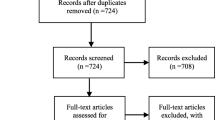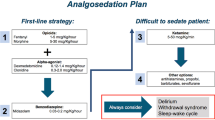Abstract
Objective: To assess the long-term clinical impact of a broad-based ethics education program for medical houseofficers with specific emphasis on appropriate care for patients who have do-not-resuscitate (DNR) orders.
Design: Prospective, with an initial randomized phase.
Setting: The medical service of a university teaching hospital.
Participants: Medical houseofficers and their inpatients.
Interventions: A pilot program in 1988, and a full program with a two-year curricular cycle from 1989 to 1991.
Measurements and main results: The authors measured compliance with specific standards of care by reviewing charts of patients who had DNR orders at baseline (n=39, 1988), after the pilot phase (n=57, 1989), and at the end of the first curricular cycle (n=56, 1991), noticing who wrote the DNR order, whether the reasons for the order and appropriate consent were documented, and whether there was documented attention to any of 11 concurrent care concerns (CCCs), such as spiritual needs, the appropriateness of tube feedings or pressors, and adjustment of analgesic dose. The percentage of DNR orders written by houseofficers increased from 26% in 1988 to 67% in 1991 (p<0.01). The percentage of charts documenting the rationale and consent for the DNR order was consistently high. The percentage of charts documenting attention to any CCC increased from 68% in 1988 to 86% in 1991 (p<0.01). The mean number of CCCs addressed per DNR order increased from 1.34 in 1988 to 2.14 in 1991. The mean number of CCCs addressed per DNR order for patients who had AIDS increased from 0.89 in 1988 to 2.25 in 1991 (p=0.03).
Conclusions: The quality of care for patients who had DNR orders, both overall and for those who had AIDS, improved over long-term observation in the setting of an ethics education program for medical houseofficers. The results suggest that ethics education may alter physician practices and improve patient care.
Similar content being viewed by others
References
The Hastings Center Project on the Termination of Treatment and Care of the Dying. Guidelines of the termination of life-sustaining treatment and the care of the dying. Bloomington, IN: Indiana University Press, 1987;48–51.
Youngner S. Do not resuscitate orders: no longer a secret but still a problem. Hastings Cent Rep. 1987;17:24–33.
Buchanan S, Cvach M, Dans P, et al. Implementation of DNR orders in the Department of Medicine, the Johns Hopkins Hospital. Maryland Med J. 1988;37:461–4.
Sulmasy DP, Geller G, Levine DM, Faden R. Medical houseofficers’ knowledge, attitudes, and confidence regarding medical ethics. Arch Intern Med. 1990;150:2509–13.
Sulmasy DP, Geller G, Faden R, Levine DM. The quality of mercy: caring for patients with ‘do not resuscitate’ orders. JAMA. 1992;267:682–6.
Knaus WA, Draper EA, Wagner DP, Zimerman JE. APACHE II: a severity of disease classification system. Crit Care Med. 1985;13:818–29.
Cruzan v. Harmon. 760 S. W. 2d 408.
Omnibus Reconciliation Act 1990. Title IV. Section 4206. Washington, DC: Congressional Record, October 26, 1990;12638.
La Puma J, Silverstein M, Stocking CB, Roland D, Siegler M. Life-sustaining treatment: a prospective study of patients with DNR orders in a teaching hospital. Arch Intern Med. 1988;148:2193–8.
Lo B, Steinbrook R. Beyond the Cruzan case: the U.S. Supreme Court and medical practice. Ann Intern Med. 1991;114:895–901.
O’Toole EE, Youngner SJ, Juknialis BW, Daly B, Bartlett, ET, Landefeld CS. Evaluation of a treatment limitation policy with a specific treatment-limiting order page. Arch Intern Med. 1994;154:425–32.
Mittleberger JA, Lo B, Martin D, Uhlmann RF. Impact of a procedure-specific do not resuscitate order form on documentation of do not resuscitate orders. Arch Intern Med. 1993;153:228–32.
Author information
Authors and Affiliations
Additional information
Supported by a Charles E. Culpeper Foundation Medical Humanities Award to Dr. Sulmasy. Computational assistance was provided by CLINFO system of the National Institutes of Health (RR00035).
Rights and permissions
About this article
Cite this article
Sulmasy, D.P., Terry, P.B., Faden, R.R. et al. Long-term effects of ethics education on the quality of care for patients who have do-not-resuscitate orders. J Gen Intern Med 9, 622–626 (1994). https://doi.org/10.1007/BF02600306
Issue Date:
DOI: https://doi.org/10.1007/BF02600306




